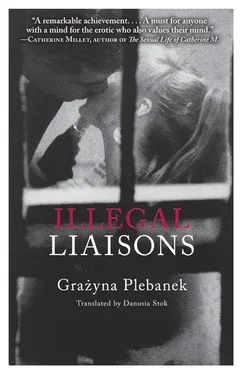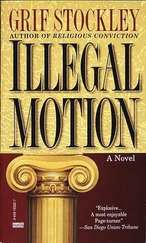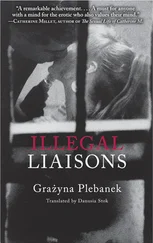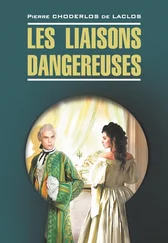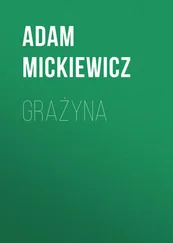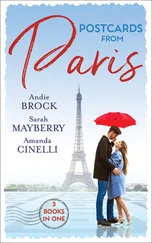He was just about to press the intercom when an elderly woman in a headscarf à la Queen Elizabeth emerged and held open the door. He thanked her, a little taken aback. His legs carried him to the second floor where all he had to do was press the bell.
“So, how are you?” asked Andrea, standing in the doorway, barefoot and wrapped in nothing but a towel.
He was going to lay it all out for her, throw it in her face, but all he managed to do was cross the threshold. And when she placed her hand – her peasant’s hand, so different from the rest of her subtle self – on his arm, he caught her by the waist, carried her into the room, and threw her on the sofa. She unzipped his fly and helped him lower his trousers – just halfway down his thighs because his cock was already digging into her velvet pussy surrounded by neatly groomed hair, was slipping in and halfway out, until she shouted; he thrust into her a few times and ejected a charge of fear and joy, rejection, and blessedness.
They didn’t manage to talk afterward because Andrea was afraid Simon would return; what they had done had been terribly careless, without a contraceptive at that. Luckily she’d taken the pill and was having her period. The sofa was sticky with sperm and blood when he drowned in Andrea once more, licked her clitoris until she groaned his name.
When later he was going home, waves of bliss mixed with the taste of menstrual blood flooded him, his head aching with jealousy that Simon always had her like that. Tiredness and arousal merged and didn’t allow him to enjoy fully what he’d just done. It had been one of those strange elations – bereft of lightness, effervescence, ecstasy. A difficult, lame elation. Yet elation.
Brussels, 2007
THE SCULPTURE ADORNINGthe lofty arch in Cinquantenaire Park glistened in the sun; Jonathan raised his eyes to catch the rays falling on the horses’ manes and the figure of the woman driving them.
Jogging had become routine for him in Brussels. He couldn’t resist the sweetness of the climate, the soothing warmth, and didn’t mind the rain and drizzle. Running ordered his stormy emotions, calmed his thoughts, and offered a relatively flat path along which glided the joy of his recent lovemaking. His body, oiled by the rapture he had just experienced, moved harmoniously; he ran and his energy, instead of being depleted, increased.
His passionate intercourse with Megi that morning had surprised him. And yet, over the past few months it had become more and more frequent. Jonathan was getting used to the thought of duality giving him strength. His strength didn’t wane from making love to his wife in the morning with the prospect of doing so to his lover in the afternoon. Quite the opposite: the anticipation of complementing the morning act wound him up to such a degree that the horses on the arch seemed like the first step in a flight to heaven.
Brussels, spring 2006, a year earlier
WHAT WAS SUPPOSEDto have been the brutal end of Jonathan’s relationship with Andrea had become its true beginning. It was then that things really started to boil; and the two of them were always on the boil, on a high flame, sparks flying. They tempered the seething roar in view of what people might think.
From the time he’d intruded on her and demanded an explanation, they met whenever they could. They discovered bestial rutting and slow lovemaking, rubbing bodies to the rhythm of music, and arousal to make the ears burn, skin tingle, and groans erupt. Jonathan tried to catch the essence of love but whether he sunk into the words of a song or the smell of his lover, he couldn’t get a hold on it. He became entangled in trivialities, alarmed by the obvious; he rejected popular ways of thinking, what other people might think, and flew – whether up or down, he didn’t know.
He no longer woke up at four in the morning, the hour of anxiety, but earlier, a couple of hours after falling asleep. He was bursting with ideas. Experience had taught him not to try to remember them – what remained in the mornings was a murky puddle of guesses – so he’d get up, sit on the edge of the bathtub and jot down strange thoughts about luminous tails. Other thoughts he tapped into his cell phone, quietly in order not to wake Megi. When the screen lit up with the night’s reply, his blood pounded, his throat grew dry – this was how his body answered Andrea’s signal.
He isolated himself from Megi. He surfed the internet whenever possible, read newspapers, or pretended to prepare material for his creative writing seminars. Once he had struck up with Andrea again, his wife’s body became that of a stranger; he was astounded she even existed. Only the children survived the ravages of his emotions. He rediscovered them, observed their changing moods, euphoric expressions, tiny manipulations, outbursts of contagious happiness – and in them recognized himself as he was with Andrea. “Andrea’s Jonathan” also flared up and sulked, wanted and took or received “a slap on the hand.” Paradoxically, he understood his children much better now.
Love, that spring, tasted differently to different people. Jean-Pierre wrote about his former girlfriends, concentrating on sensual experiences. Jonathan felt he’d been given a Swedish quilt sown from scraps of material – colorful, warm, and useless.
“And what happened with Fabienne later?” he asked, pointing to the name of the first girl on the list of the author’s juvenile fascinations.
“I don’t know.” Jean-Pierre shrugged.
“Then make it up,” said Jonathan.
Ariane described her infatuation with a certain sailor. There were numerous expressions denoting aesthetic admiration for her white and his black skin; yet just as the beginning of the story foreshadowed a long piece of work so the end shrunk hastily. When Jonathan drew Ariane’s attention to this, she nodded in acknowledgement: she had so many stories she feared she wouldn’t have time to tell them all.
“Choose one,” Jonathan advised but Ariane wasn’t convinced.
“One? Why one? Why this one in particular?”
Kitty wrote about love for a child. Tenderness seeped from every word until all those present smiled at the successive diminutives. Looking at her, it crossed Jonathan’s mind that women submerged themselves in motherhood, became the yolk kneaded into a cake mixture. For homework, Jonathan advised Kitty to write a similar text about herself.
“But how?” she asked.
“The same as here.” He tapped his finger on her piece about love. “With the same tenderness.”
A skeptical smile appeared on Kitty’s face but Jonathan didn’t budge.
“Try, at least give it a try. In a few years your leaven will be ready.”
“Leaven?” Her eyes opened wide.
“The beginnings of a new love. People really need it. Parents.” He smiled.
Nora’s story was an enormous tapestry, an epic framework, ready to be filled with characters. Jonathan had few comments; he waited to see whether Nora would populate her story with small, precise individuals or focus on one, clear character.
The problem was Geert. His story began in a childhood spent in the Congo, gave a vivid picture of the landscape with all its smells, gusts of wind, rustling grass … and there it floundered. Geert couldn’t write any more. Jonathan examined the barely sketched emotions and tapped the French text with his pen.
“Have you tried writing it in Dutch?” he asked.
Geert shook his head.
“French is closer to me. I went to school in Liège when we got back from the Congo, then studied in Paris.”
Jonathan read through the conclusion again.
Читать дальше
